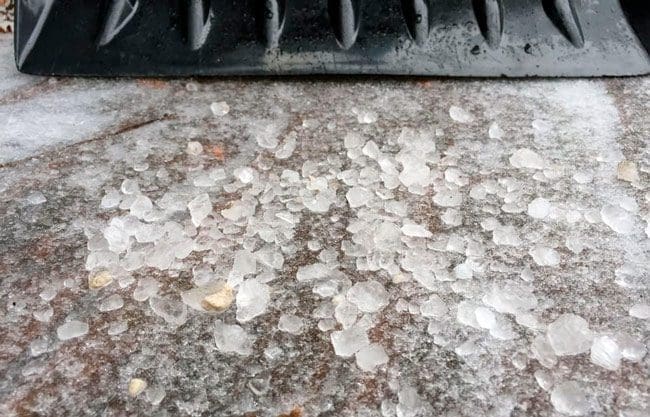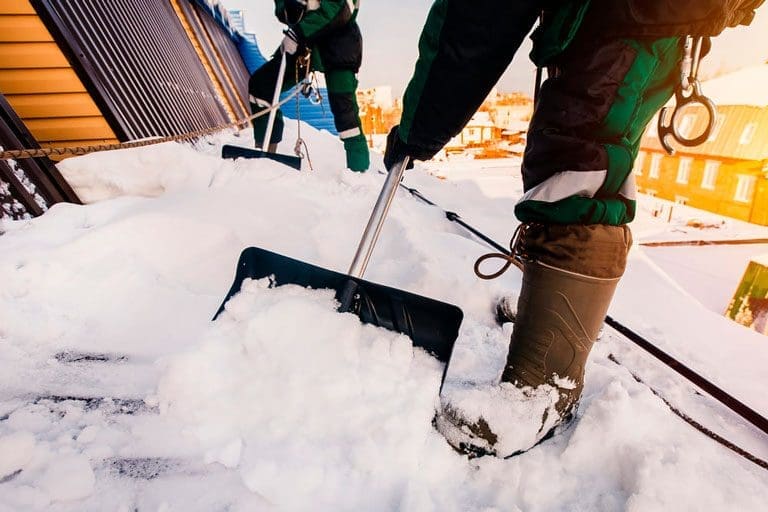Rock salt has long been used to prevent or minimize ice formation, and for this reason, many people opt to use it on their roofs. The winter months can put a huge amount of pressure on your roof, thanks to ice and icicle formation, and the heavy load that snow bears on any roof.
The more snow, the more weight pushing down on your roof – and no matter new that roof might be, there’s no telling the damage that can be done by huge quantities of slowly melting ice and snow.
The last thing anyone wants during the winter is a collapsed or damaged roof, which not only exposes your home but brings with it the risk of water damage to your property.
For these reasons, rock salt seems like a compelling option. It melts snow and ice and helps prevent further freezing. But is that the whole story?
Let’s take a look at how rock salt works, whether it’s good for your roof, and the options available to you right now.
Here’s How Rock Salt Works
Rock salt is so widely used on the ground because it lowers the freezing point of water, meaning snow and ice turns to watery slush on the ground. The fact that salt is absorbed by water is also beneficial, as it mixes with the snow and water to form a brine. This brine solution spreads across the ground and as it mixes with fresh snow and ice, causes further melting.

It’s hugely effective, and because the salt is always mixing with new water, it’s important to continually add salt throughout winter weather events. We should also note that rock salt is effective but only at temperatures above 20 degrees Fahrenheit.
How Rock Salt Affects Your Roof
So can rock salt work on your roof?
The short answer is no.
Technically, the salt will work in the same way, but the fact that salt needs to be repeatedly applied makes it hugely impractical. Not only that, but it will potentially cause damage to your roof.
Salt, being corrosive, will pose a risk to the most vulnerable parts of the roof. These would include nail heads, seals, flashing, and more. By continually applying rock salt to ensure the snow and ice keep melting, corrosion will occur and nails may rust. Over time, this weakens your roof and even risks parts of flying away during strong winds.
Clever Roof Protection Methods for This Winter
Don’t worry. We’ve got alternatives for you.
Manual Snow Removal
This is the simplest and most effective way of protecting your roof. Manually removing snow gets rid of the weight on the roof without risking corrosion damage.
This method does, however, typically require professional assistance to make sure you stay safe!

Alternative De-icers
Other de-icers like liquid potassium-acetate, calcium-magnesium acetate, or even urea, can provide the ice melting effect you need without causing damage to your roof. These de-icers will need to be re-applied to your roof like salt, but won’t cause the same amount of damage or risk to your driveway, plants, or landscaping.
Earth Development Is Here To Help
At Earth Development, we have the tools and the expertise required to keep your roof structurally sound and protected this winter. With hundreds of vehicles and tools at hand, along with expert teams across the north-eastern United States, we’re always ready to help you out.
From professional de-icing to regular snow removal, you can count on us to keep your business, be it industrial facilities or retail shopping centers, free from nuisance snow and ice.
For more information, give the team a call today at (866) 838-1422 or get your free quote online!
